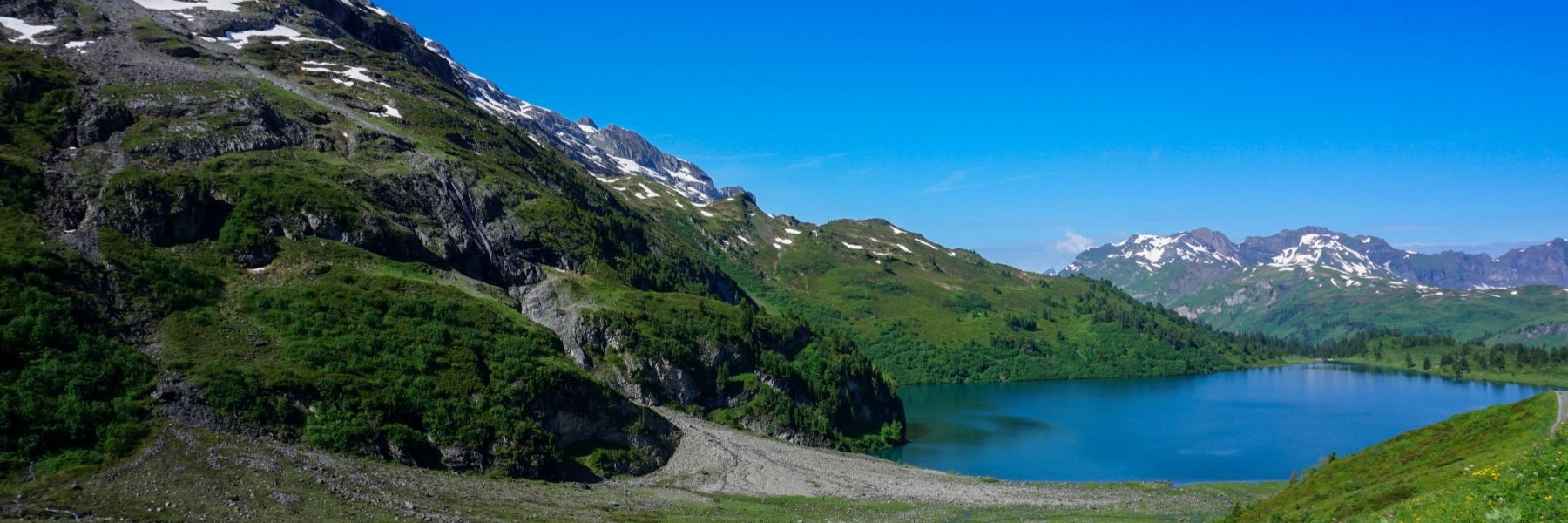And one more day along the “Trans Swiss Trail”. The day before, we reached Worb where we spent the night. So, off we went starting from this small town to climb towards Worbberg.
Very quickly, the tone of the day was given: above Worb, a magnificent view of the Bernese Alps and the Gantrisch massif was offered to us. Despite a few passages in the forest, one still has here and there views of these mountains.
From Worb, we follow in a way the Bigletal, but staying on the heights. And it is much better that way. One can enjoy the views, the varied landscapes between forests and pastures. In addition, the Bigletal traffic is avoided.
After crossing the Worbberg forest, it is not long before arriving at the Rüttihubelbad, a cultural and social center. It was built based on iron-rich water baths (which explains the name) and a restaurant. Although the restrictions due to the pandemic have somewhat hampered the activities of the center, a rich program of activities is provided.
Another forest and beautiful viewpoints bring us near Aetzrütti, a little hamlet located in a small valley. Following the ridge and avoiding the road, one reaches Ebenläng, just before plunging quite steeply in the direction of Schaffausen im Emmental. At this point, one crosses the road (quite busy) and the railway line.
One would be tempted to follow the road which leads directly to Goldbach. But it is better to follow the marked path that goes up to Bigelberg before going down to this locality.
Lützelflüh-Goldbach is a large village and there are the necessary shops to prepare for the picnic the next day.
One just must cross the Grosse Emme to reach Lützelflüh. This village is best known because of a writer from here: Jeremias Gotthelf. This author, well known in German-speaking Switzerland, notably wrote the famous “Uli der Knecht”, awkwardly translated “Uli the peasant” in French (the translation should rather be “Uli the valet”, in the sense of farmhand).
